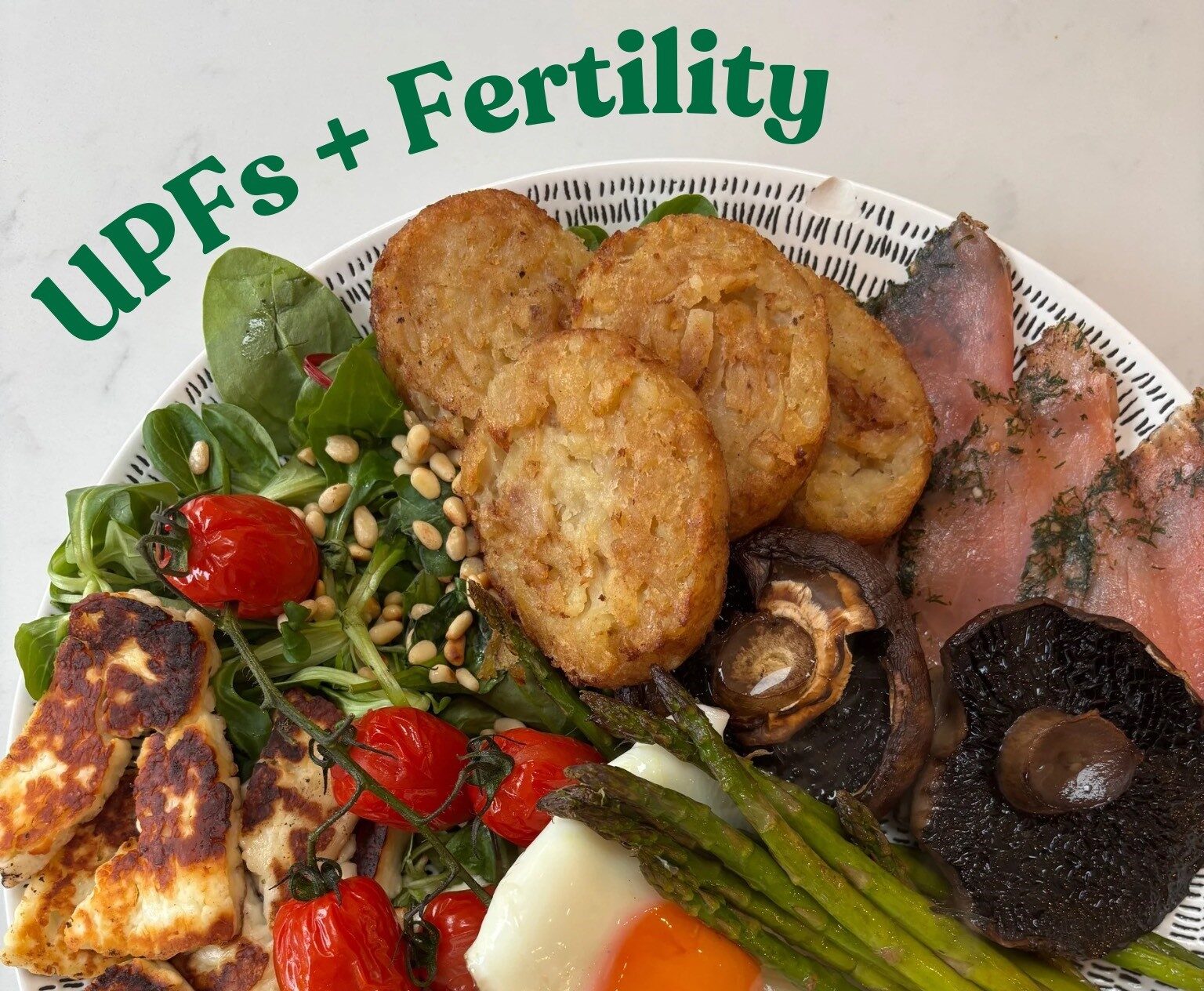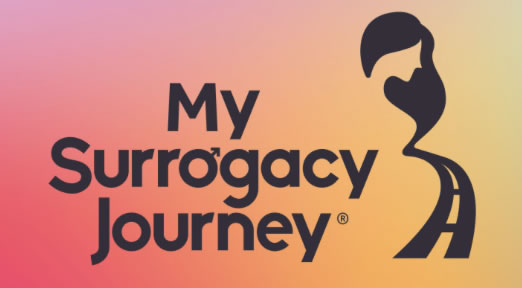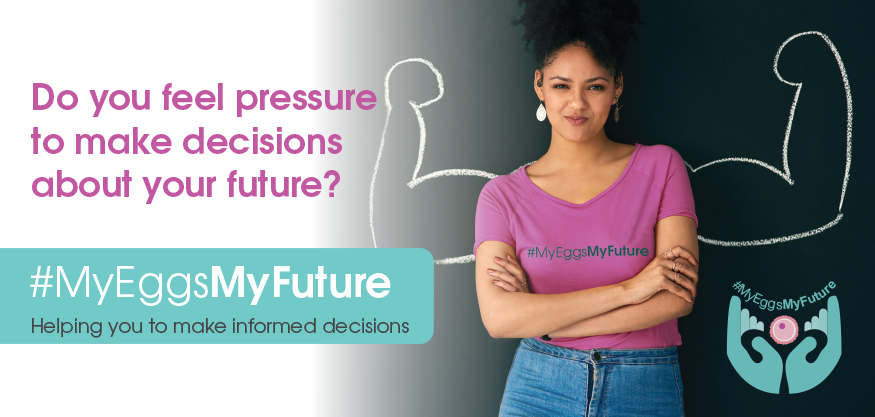My Eggs, My Future
A Guide to Your Fertility and Family Planning
Welcome to "My Eggs, My Future", your educational hub for understanding and taking control of your reproductive health. We believe that knowledge is power. Our mission is to empower you with comprehensive, clear information about your fertility choices so you can make confident decisions for your future.
Why should I think about my fertility now?
The quality and quantity of your eggs naturally decrease as you get older. By understanding your fertility, ovarian reserve and fertility preservation options like egg freezing, you can proactively plan for a family on your own timeline.
While there's no way to measure egg quality, you can assess your ovarian reserve with a simple blood test called an Anti-Müllerian Hormone (AMH) test. This test helps you understand the number of eggs you have, which is a key factor in your fertility.
Explore our resources on egg freezing and real stories from women who have taken this journey. Your future, your way.
Premenopausal at 19 years of age
My name is Kira, and I’m 19 years old. I have recently discovered that my body is working against me.
Kira’s Story – 19 yrs old and premenopausal.
Michael Johnson-Ellis from TwoDads UK talkis to Kira Jones about her discovery of being premenopausal at the early age of 19. They talk about how she discovered this news, how she felt and how she delt with it. Kira had to consider egg freezing if she wanted to have a family of her own in the future. Watch the video above or read more about Kira's story. < click to read post >
FAQ: Egg Freezing
Egg freezing is one way of preserving your fertility so you can try to have a family in the future. It involves collecting your eggs, freezing them and then thawing them later on so they can be used in fertility treatment.
Your chances of getting pregnant naturally decreases as you get older because the quality and number of eggs drop. Egg freezing can be one way of preserving fertility by freezing your eggs while you are young and your eggs are of the highest quality.
Sadly, there is no test to measure egg quality. But there is a test called Anti-Müllerian Hormone (AMH) which tells us about your ovarian reserve. An ovarian reserve is an indication of the number of eggs left in your ovaries. AMH is determined by growing follicles called pre-antral and antral follicles. Since these follicles represent a total pool of eggs, a normal value of AMH means you have a normal pool. If the value reduces, it means that you may have less time to get pregnant and become a parent.
In other words, the more eggs you have in reserve, the more antral follicles will be recruited and the higher the AMH level will be, and vice versa.
The main factor for a successful pregnancy resulting in a successful birth is the quality of your eggs. The best measure of the quality is usually the age of the woman.
You were born with a set number of eggs that you will use for the rest of your reproductive life. Your ovaries will not produce any new eggs over the years. The average female fetus has around 5 million eggs in their ovaries by 20 weeks of pregnancy. During development within its mother’s womb, the fetus will lose more than half of the eggs, with the average baby girl having around 2 million eggs at birth.
During growth and development in childhood, more than half of the eggs will be lost, and by puberty (teenage years), the egg reserve will drop to 0.5 to 1 million eggs. These immature eggs are all dormant (asleep). However, at the beginning of each menstrual cycle (monthly period), a small number of immature eggs will be recruited (woken up) from this egg pool. The recruited eggs can be seen as tiny fluid-filled sacs in the ovaries with an ultrasound scan. These are known as antral follicles and on average there would be 5 – 10 in each ovary.
You might want to consider freezing your eggs if:
- You have a medical condition or need treatment for a medical condition that will affect your fertility, such as cancer (NHS funding might be available depending on where you live). Fertility may be preserved either by storing eggs, embryos or a combination of both.
- You are worried about your fertility declining but you’re not ready to have a child or you haven’t found the right partner – this is often called ‘elective egg freezing’.
- You are at risk of injury or death (for example, you’re a member of the Armed Forces who is being deployed to a war zone).
- If you are a female transitioning to a male, you may want to preserve your fertility before you start hormone therapy or have reconstructive surgery. Both treatments can lead to the partial or total loss of your fertility. Find out more from the HFEA.
- You don’t want to have any remaining embryos that were not used after IVF treatment for ethical reasons.
Firstly, you’ll need to be tested for any infectious diseases like HIV and hepatitis. This has no bearing on whether you can freeze your eggs or not, but is to ensure that affected egg samples are stored separately to prevent contamination of other samples.
You'll then start the IVF process, which usually takes a few weeks to complete. Normally this will involve taking drugs to boost your egg production and help the eggs mature. When they’re ready, they’ll be collected whilst you’re under general anaesthetic or sedation.
At this point, instead of mixing the eggs with sperm (as in conventional IVF) a cryoprotectant (freezing solution) will be added to protect the eggs. The eggs will then be frozen either by cooling them slowly or by vitrification (fast freezing) and stored in tanks of liquid nitrogen. Latest statistics show that vitrification is more successful than the slow cooling method.
Most patients under 38 years of age will have around 7-14 eggs collected, although this isn’t always possible for patients with low ovarian reserves (low numbers of eggs). When you want to use them, the eggs will be thawed and those that have survived intact will be injected with your partner’s or donor’s sperm.
The average cost of having your eggs collected, frozen and thawed cost approximately £8,000.
Fertility treatment and egg freezing is mostly very safe, although some people do experience side effects from their fertility drugs. These are usually mild, but in extreme cases women can develop ovarian hyperstimulation syndrome (OHSS), which is potentially fatal, so you should familiarise yourself with the symptoms.
Find out more about the risks of fertility treatment
The major risk is that it won’t work – read more about success rates below.
It’s also important to know that as you get older, there is more risk of pregnancy-related complications and health problems to both you and your baby.
For the latest statistics on egg freezing visit the HFEA Research and data page
Egg freezing is a rapidly changing field. If you do decide to freeze your eggs, make sure you choose a clinic that has a lot of experience and ask to see their most recent success rates for women your age.
When looking at success rates for frozen eggs, numbers tend to be quite low. The technology for egg freezing has also improved over the years which means older data isn’t comparable to current success rates. We advise patients to look at success rates for fresh IVF cycles with patients using their own eggs in their age band. We consider these rates to be more reliable as there are much higher numbers of fresh embryo transfers each year compared to egg freezing. This information can be found in Choose a Fertility Clinic and in the HFEA’s Fertility trends report.
Most people can store their eggs for a maximum of 55 years. This used to be 10 years until legislation changed in 2022.
You’ll need to complete consent forms before you start treatment specifying how you want your eggs to be used. This includes information on:
- how long you want the eggs to be stored for (you can store your eggs for up to 55 years if you renew your consent to storage every 10 years)
- what should happen to your eggs if you were to die or become unable to make decisions for yourself
- whether the eggs are to be used for your own treatment only, or whether they can be donated for someone else’s treatment, or used for training if you don't want to use them
- any other conditions you may have for the use of your eggs.
You can vary or withdraw consent at any time, either before treatment (embryo transfer) or before the eggs are used in research or training. If this happens, your eggs will not be used.
Find out more about giving consent as stipulated by the HFEA
If your eggs are not used immediately in treatment, you may wish to store your eggs so they can be used for treatment in the future. You will need to think about how far in the future you might want to, or be able to use stored eggs and the potential costs of storing. This is something you should discuss with your clinic.
On 1 July 2022, the rules on how long you can store eggs, sperm or embryos changed. Before 1 July 2022, most people could usually only store their eggs, sperm or embryos for up to 10 years. Only if they had premature infertility or were going to be having medical treatment which could affect their fertility, could they store for up to 55 years.
The law now permits you to store eggs, sperm or embryos for use in treatment for any period up to a maximum of 55 years from the date that the eggs, sperm or embryos are first placed in storage. However, crucially for storage to lawfully continue you will need to renew your consent every 10 years. You must give your consent on the relevant consent form. You will be contacted by your clinic with relevant information and they should also provide you an offer of counselling before you give consent to storage of your eggs. Your clinic will contact you and provide the consent forms that you need to complete at the appropriate time. It is therefore essential that you keep your contact details up to date with your clinic as you will need to be contacted. If your clinic is unable to contact you your eggs will be at risk of being removed from storage and disposed of.
You don’t have to match the length of storage to any contract for paying for the storage (whether you, or the NHS, is paying). However, if you don’t pay for storage as agreed, the clinic may be within its right to dispose your eggs. Your clinic should have explained this to your clearly when you stored your eggs.
If you do not renew your consent to storage, your eggs will be removed from storage and disposed of when they can no longer be lawfully stored.
If you do not wish to renew your consent to storage or to continue storing your eggs then you can withdraw your consent to storage. You will need to contact your clinic and complete the relevant withdrawal of consent form. At this point you may wish to consider donating the eggs that you do not wish to use for your own treatment for training purposes, or for use in someone else’s treatment. You would need to discuss this with your clinic and provide the additional consents where relevant. You can also consider donating your eggs for use in research, helping to increase knowledge about diseases and serious illnesses and potentially develop new treatments. Your clinic will need to give you more information about this and advise you whether this is an option for you.
Eggs that have been frozen and thawed must be fertilised using a fertility treatment called ICSI, as the freezing process makes the outer coating around the eggs tougher and sperm may be unable to penetrate it naturally under IVF.
This will be an extra cost on top of the fee for collecting, freezing and storing your eggs unless you have NHS funding.
If none of your frozen eggs lead to a successful pregnancy, depending on your age you might want to try conceiving naturally or start IVF treatment. You can have IVF with donor sperm or eggs (or both) depending on your situation.
You might also want to explore other options for having a family, such as adoption.
If you have frozen eggs you don’t want to use, you have a number of different options.
Donate them to someone else: You may be eligible to donate your eggs to someone else who very much wants a family.
Find out more about donating your eggs
Donate them to training: You may have eggs that you do not wish to use (for example, because the eggs are not needed, or are not suitable, for treatment). You can consent to your eggs being used and stored for potential use by designated healthcare professionals to practice the techniques involved in fertility treatment on the relevant HFEA consent form. If you give your consent to storing your eggs for training purposes, your clinic may store your eggs for these purposes for up to 55 years from the date that your sperm are first placed in storage.
Donate them to research: Research on eggs, sperm and embryos is invaluable in helping scientists to understand causes of infertility and develop new treatments.
Find out more about donating to research
Dispose them: Some people prefer to dispose of their eggs. Eggs that are no longer needed are simply removed from the freezer and allowed to perish naturally in warmer temperatures or water.
Egg Donation video
Ever wondered what the difference is between altruistic egg donation and egg sharing?
Egg Freezing and the impact of age on fertility
The impact of age on fertility and why egg freezing might be a good option if you want to start a family later in life by Dr Praveena Pai.
Are Ultra-Processed Foods (UPFs) as bad as social media thinks?
There has been a lot of noise in the social media world about Ultra Processed Foods (UPFs) recently. But is it just the next trending topic? Or do we genuinely need to be aware of the dangers UPFs could have on our health? Part of the ... < click to read post >Alex Ballard – Fertility Dietitian
Alex is a specialist fertility dietitian offering virtual consultations to both NHS and private patients. We are extremely happy to welcome Alex back on board after she took a short career break to raise her two young children. We partner with Alex who is available to ... < click to read post >Alex is a specialist fertility dietitian offering virtual consultations to both NHS and private patients.
Ovarian Reserve and Age
Praveena Pai FRCOG Consultant Gynaecologist Am I too old to try for a pregnancy? Navigating the journey of fertility can be both an exciting and daunting experience, especially as women face the inevitable reality of ageing. Understanding the intricate relationship between age and fertility is crucial for anyone ... < click to read post >Understanding Uterine Fibroids: What You Need to Know
Uterine Fibroids Uterine fibroids are non-cancerous growths composed of muscle and fibrous tissue that develop within the walls of the uterus. Fibroids are almost always benign. The occurrence of cancerous fibroids is exceptionally rare, with less than a 1 in 1,000 chance. Many women with fibroids remain ... < click to read post >Uterine Fibroids Uterine fibroids are non-cancerous growths composed of muscle and fibrous tissue that develop
Reproductive Science Centre vs Family-Friendly Fertility Clinic
Fertility Myths Busted! When it comes to fertility treatment, misinformation and myths can create unnecessary stress and confusion for individuals and couples on their journey to parenthood. The Herts & Essex Fertility Centre, might well be a Reproductive Science Centre but patient reviews indicate that they ... < click to read post >Fertility Myths Busted! When it comes to fertility treatment, misinformation and myths can create unnecessary
#MyEggsMyFuture
Helping you to make informed decisions

In the News
World’s top 750 tennis players who wish to freeze their eggs or embryos will now be given a “special ranking”
Why tennis players undergoing fertility treatment will have their world ranking protected
How much does it cost to freeze your eggs and can it go wrong?
The fastest growing fertility treatment in the UK, according to the Human Fertilisation & Embryology Authority.
Egg Freezing and the impact of age on fertility – by Dr Praveena Pai
The impact of age on fertility and why egg freezing might be a good option if you want to start a family later in life.
Fertility test kits: affordable and easy but there are downsides
Fertility test kits: affordable and easy but there are downsides
The promise and perils of the egg-freezing revolution
The promise and perils of the egg-freezing revolution
HFEA statement: Incident at Guy’s and St. Thomas’ Assisted Conception Unit
HFEA statement: Incident at Guy’s and St. Thomas’ Assisted Conception Unit
Egg freezing rises as more women look to preserve fertility
BBC News story by Charlie Jones
What is egg freezing and how does it work?
INDEPENDENT Story by Lauren Taylor
Vicky Pattison: Sharing my egg-freezing journey nearly broke me
Vicky Pattison: 'Sharing my egg-freezing journey nearly broke me'
Increasingly, people are choosing to start a family later in life
#MyEggsMyFuture – Herts & Essex Fertility Centre's new campaign!
Useful Reads and Sites
HFEA: UK fertility regulator
Some clinics offer free or discounted IVF treatment to patients who agree to share their eggs with another patient or couple having treatment.
Fertility Network UK
We know there’s no ‘one size fits all’ approach when it comes to fertility, so that’s why we offer a wide range of resources and support.
TwoDadsUK
We’re on a mission to help raise awareness of Same-Sex Parenting and help normalise our own modern family.
My Surrogacy Journey
Exceptional professional, practical and emotional support for everyone on a journey through Surrogacy in the UK, US, Canada & Mexico City.
My Surrogacy Journey Podcast
 Click here to listen to the episode on Fresh vs Frozen Eggs with Debbie Evans, Director of Clinical Services and David Ogutu, Medical Director.
Click here to listen to the episode on Fresh vs Frozen Eggs with Debbie Evans, Director of Clinical Services and David Ogutu, Medical Director.









